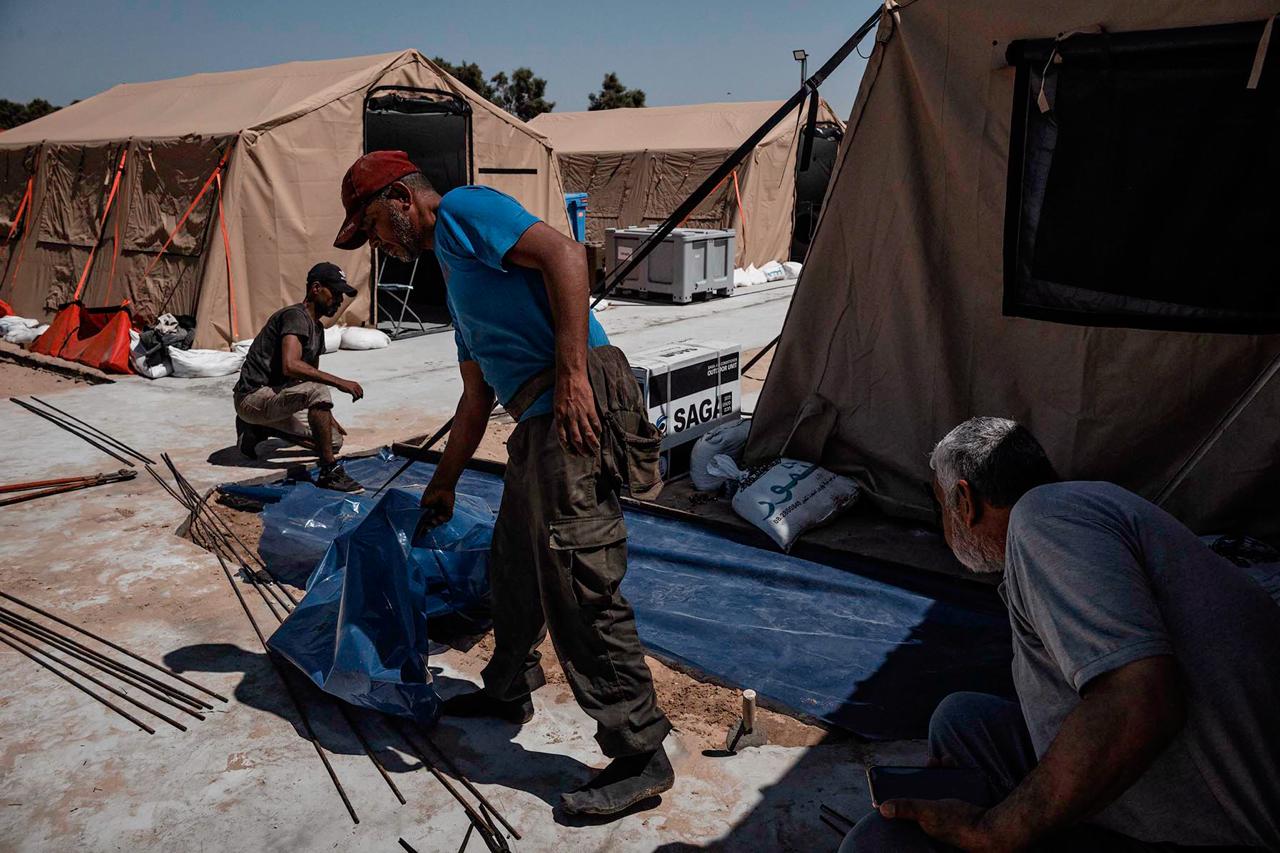
Over the last few years UK-Med has seen a rapid expansion in our breadth of programmes – including being the world’s biggest responder to Covid-19, then establishing our first long-term country programme in Ukraine. Many of the people who’ve worked on these projects form part of our UK-Med Register.
Established in 2011, the Register holds nearly 1,000 health and humanitarian professionals with a wide range of expertise, including nurses, doctors, paramedics, and specialists in logistics, WASH (water, hygiene, sanitation) and community experts. All have gone through specific vetting and training in order to be able to respond to a variety of emergencies, with many helping to form teams across over the world, while others have yet to deploy.

This month, Manchester saw UK-Med host its first Register Weekend, where thirty of our core staff and selected Register members got together to discuss everything that’s been happening, including the impacts and challenges faced when delivering our international health programmes. Amongst the points of discussion were the strategies involved in deploying Register members; UK-Med working as the UK-EMT (the UK’s Emergency Medical Team); and the imperfections and frustrations that can be experienced during first line responses.
‘This pilot event was open to UK-Med Register members who joined the organisation pre-2022, as an opportunity to learn more about how our humanitarian programme has developed from when they first signed up,’ said David Wightwick, UK-Med’s CEO. ‘Following several Covid years, in which we lacked face to face contact, it’s fantastic to be in the same room. The changes in the organisation: the number of responses and range of activity and scale of what UK-Med is engaged in, make it essential that we have the space to discuss everything properly – to update, gain feedback and move forward together.’

Trish McCready, who’s an adult critical care nurse for Guys and St Thomas’ NHS Foundation Trust has been on the Register since 2018 and deployed twice with UK-Med, first to Armenia in 2020, where she provided training in both Covid and critical nursing care in Yereven, and then to Eastern Ukraine where she travelled with a Ukrainian doctor, providing general healthcare in villages previously occupied by Russian forces and working in clinics with with internally displaced people.
For her the weekend was about catching up with recent developments, as well as colleagues she’s previously worked with. ‘I always enjoy UK-Med events. They’re different to the training I receive in the NHS as they include lateral thinking and working in environments which are particularly challenging. It was interesting to hear about the organisation’s work from an operational perspective. I saw how having teams in Ukraine, Malawi and then responding to the earthquake in Turkey and Syria, all at the same time was challenging, but as always UK-Med rose to the task, providing the different sorts of health care needed.’

On the second day, Gemma Blakey took the participants on a tour of the UK-Med warehouse. Based in Stockport, it houses all the medical equipment our teams need when working overseas. She was delighted that the weekend took place, and hopes it’s the first of many.

‘I think having these kinds of sessions are critical in terms of helping our clinicians understand the work we need to do in making sure they have all the equipment they need to do the job when they arrive at their deployments. I was able to show how we package and modulise equipment – in order to get a hospital out to them as quickly and efficiently as we can; packaging everything in the way that it can be unpacked, structures built, and they can be seeing patients as soon as possible.

‘Some of the questions included how we decide what equipment gets sent. I explained that we generally have a box and a tent for every section of a hospital. So, for instance, a maternity section has its own tent and a box including everything that will be needed, from stationery and PPE to specialised birthing equipment.
‘When it comes to what medication is sent, we talked about our health team reviewing a standard list. Obviously we can’t provide everything for every context (like they might be used to in the NHS), and also some medications aren’t appropriate. For instance, in Ukraine asthma is managed very successfully without the use of the spacers we use in the UK. So it would be inappropriate to introduce something that’s not a priority. Having a standardised list also helps us work more efficiently with other NGOs.
‘Ideally we’d love everyone who deploys to come and see us first; although we know this isn’t possible as many of our clinicians arrive at deployments from bases abroad. If they could, they’d understand exactly what happens at headquarters and why, although we’re doing things as quickly as possible, it might sometimes seem like they’re waiting a long time. Secondly, meeting people face to face is always great for team building. I do myself sometimes deploy. For instance, I was in Ukraine for twelve weeks, helping with the initial needs assessment. And knowing people, even a little bit, means you can work together so much more efficiently.’
We expect to have more events running later this year, depending on our capacity to support them alongside our humanitarian programming. Scheduling and sign-up instructions will be shared with eligible Register members in due course.






No Comments